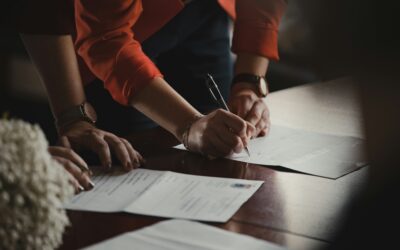Mold is more than an unsightly nuisance—it can trigger severe respiratory issues, allergic reactions, and even neurological problems when allowed to proliferate indoors. In Georgia’s humid climate, mold growth in rental properties is all too common. When landlords fail to address water leaks or poor ventilation, tenants’ health and homes can be put at risk. If you’ve suffered illness or property damage from toxic mold, it’s crucial to understand your legal rights and how to hold negligent landlords accountable.
Why Mold Thrives in Georgia Rentals
- High Humidity: Georgia’s subtropical climate provides the perfect moisture for mold colonies.
- Leaky Pipes & Roofs: Unrepaired plumbing leaks or roof damage create hidden pockets of dampness.
- Inadequate Ventilation: Older homes or poorly maintained HVAC systems trap moisture in bathrooms, kitchens, and basements.
- Flooding & Storm Damage: Heavy rains, hurricanes, or flash floods can saturate carpets and drywall.
Left unchecked, mold can spread within 24–48 hours, releasing spores and mycotoxins that endanger tenants’ health.
Landlord Duties Under Georgia Law
Georgia landlords are required to provide “habitable” premises, which courts interpret to include reasonably safe, mold-free living conditions. Key obligations include:
- Timely Repairs: Address and fix leaks, roof damage, or plumbing issues within a reasonable time after tenant notice.
- Proper Ventilation & Insulation: Maintain HVAC systems and ensure exhaust fans function in moisture-prone areas.
- Routine Inspections: Regularly check for hidden moisture sources—behind appliances, under sinks, and in crawlspaces.
- Disclosure: Inform prospective tenants of any known history of mold or water intrusion before leasing.
Failure in any of these areas can constitute landlord negligence.
Recognizing Toxic Mold Injuries
Symptoms from mold exposure vary widely but often include:
- Respiratory Problems: Chronic coughing, wheezing, or asthma exacerbations.
- Allergic Reactions: Skin rashes, itchy eyes, runny nose, and sinus infections.
- Neurological Symptoms: Headaches, memory issues, or mood changes in severe cases.
- Property Damage: Warp, staining, and structural decay of rental interiors and personal belongings.
Medical documentation of these conditions strengthens both health and legal claims.
Steps to Take If You Discover Mold
- Notify Your Landlord in Writing: Promptly inform them of the problem with dated photographs of mold patches and water damage.
- Get a Professional Inspection: Hire a licensed mold assessor to document the species, concentration levels, and source of growth.
- Seek Medical Attention: If you experience symptoms, see a doctor who can link your health issues to mold exposure.
- Document Everything: Keep copies of repair requests, inspection reports, medical records, and correspondence.
- Mitigate Further Damage: Follow landlord instructions for temporary drying or attend to minor cleanup if safe—and keep records of any expenses.
- Consult an Attorney Early: Georgia’s two-year statute of limitations for property damage and personal injury claims applies; an attorney can preserve your rights.
How Tenants Can Recover Compensation
Depending on the severity and landlord response, a successful claim can seek:
- Medical Expenses: Reimbursement for doctor visits, treatments, and medications linked to mold-related health issues.
- Property Damage: Compensation for ruined belongings, clothing, electronics, and structural repairs.
- Housing Costs: Temporary relocation expenses if your home becomes uninhabitable.
- Pain & Suffering: Recovery for emotional distress and diminished quality of life.
- Punitive Damages: In extreme cases of willful neglect or fraud—if the landlord knowingly concealed mold issues.
Why You Need an Experienced Attorney
Mold litigation involves complex expert testimony—from industrial hygienists, environmental engineers, and medical specialists. At Gunn Law Group, we:
- Assemble Top Experts: We retain qualified mold assessors and medical professionals to build undeniable proof of negligence and causation.
- Manage All Communication: We handle landlord negotiations and, if needed, file suit to ensure your claim isn’t delayed or undervalued.
- Fight for Maximum Recovery: We push for full compensation for your health care, property loss, relocation costs, and emotional toll.
- Guide You Every Step: From initial notice letters to trial readiness, we provide clear advice and strong advocacy.
Don’t Let Mold Take Over Your Health or Wallet
If you’re suffering from toxic mold in your rental home, time is of the essence. Call Gunn Law Group at 888-BIG-GUNN (888-244-4866) today for a free consultation. Let “the Big Gunn” investigate your case, enforce your rights, and secure the justice and compensation you deserve.



